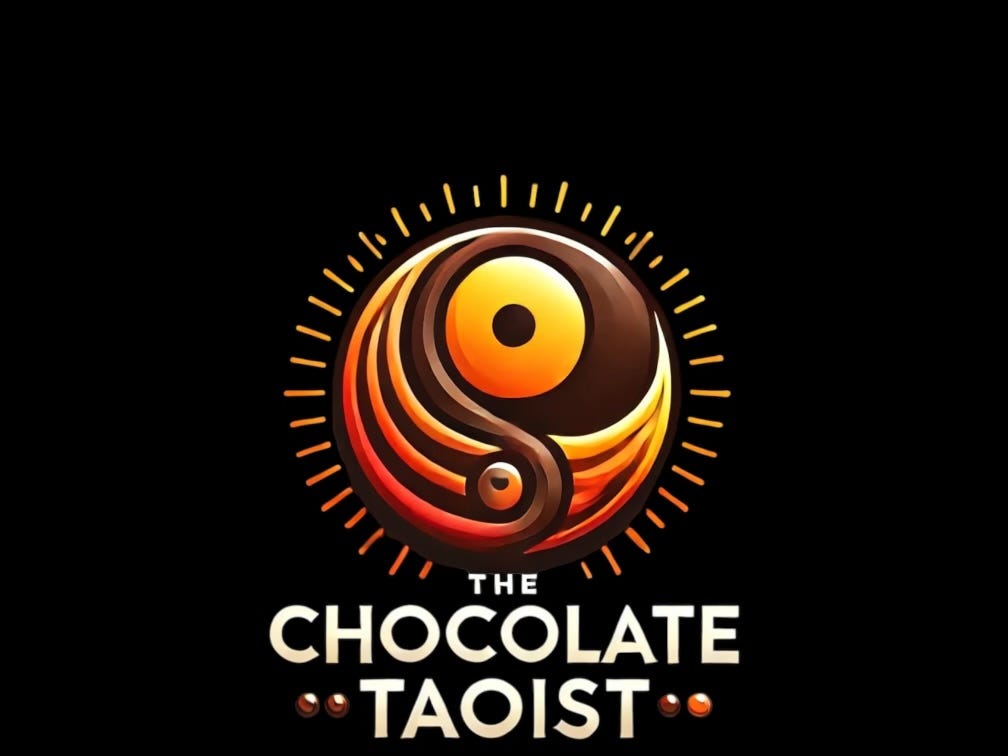Sitting With the Frustration And Rage of Others
How to Embrace Mindful Compassion Without Getting Sunk
We are in interesting times, an intense period of change, uncertainty, and upheaval. As the social and political landscape continues to fracture and social and financial pressures loom, the weight of these times seems almost unbearable for many.
Recently, I’ve observed an uptick in friends, family, and acquaintances expressing—often with vehement rage—the pain, suffering, and vitriol they feel about the state of the world. I see these moments of vulnerability as stark reminders of the collective anguish shaping our era.
But as witnesses to their outpourings, I/we are left with a difficult question:
How can we be compassionate listeners without allowing their negativity and toxicity to pull us under?
How do we honor their suffering while maintaining our own equilibrium?
This tension is a familiar struggle in Eastern philosophy, where the challenge is not only to feel deeply but also to transcend attachment to those feelings.
In Buddhist thought, suffering is inevitable, but clinging to suffering—or trying to take on the suffering of others as our own—can lead us to drown in an ocean of despair. The key lies in cultivating mindfulness, which allows us to be present with others while protecting our own inner peace.
Psychotherapist and author Mark Epstein, whose work bridges Buddhism and Western psychology, offers valuable insight into this dynamic. Epstein emphasizes that being present with suffering—our own or someone else’s—is not about solving it or even fully absorbing it. Instead, it’s about creating space where pain can be seen, felt, and held without being resisted or suppressed.
In his book The Trauma of Everyday Life, Epstein writes, “If we can let go of the idea that we need to fix each other, we can be with one another in a way that feels more whole.”
This wholeness, however, does not mean collapsing into the pain. It means holding it gently, without letting it engulf us.
So how do we hold space for the people we care about while safeguarding our emotional well-being? Here are some mindful approaches that may be able to guide us:
💡 Anchor Yourself Before Engaging
Just as a tree’s deep roots stabilize it during a storm, we must ground ourselves before entering emotionally charged conversations. Practices like meditation, qigong, or simply taking deep breaths can center us, ensuring we engage from a place of calm rather than reaction. When we are anchored, we’re less likely to absorb the emotional intensity of others.
💡 Practice Non-Attachment
The Tao Te Ching advises, “Do your work, then step back. The only path to serenity.” In this context, “work” refers to listening with an open heart. Yet, we must also step back emotionally, recognizing that we are not responsible for resolving someone else’s pain. By practicing non-attachment, we can bear witness without becoming entangled.
💡 Use Compassionate Boundaries
Compassion does not mean self-sacrifice. It is possible—and necessary—to set gentle boundaries when someone’s negativity becomes overwhelming. A phrase like, “I hear how deeply this is affecting you, and I want to be here for you, but I also need a moment to process and reflect,” allows us to show care while protecting our energy.
💡Reflect, Don’t Absorb
Epstein advocates for a practice called bare attention, a mindful approach where we observe emotions (ours or others’) without judgment or identification. This practice encourages us to reflect on what we’re hearing rather than internalizing it. Think of yourself as a mirror: you can reflect back what someone shares without taking it into your own emotional body.
💡Help Channel Their Pain into Compassionate Action
When anger or negativity feels overwhelming, channeling those emotions into constructive action can be transformative. Encourage the person to focus their energy on solutions—volunteering, writing, or advocating for a cause they care about. Doing so not only empowers them but also shifts the energy from despair to purpose.
💡 Tend to Your Own Emotional Hygiene
As much as we want to be there for others, we cannot pour from an empty cup. Regularly check in with yourself: Are you feeling drained? Resentful? Exhausted? Practices like journaling, time in nature, or mindful movement can help you release the emotional residue of others’ struggles.
💡 Embrace the Paradox of Life
Eastern philosophy teaches that life is full of paradoxes: joy and sorrow, hope and despair, chaos and order. As Lao Tzu reminds us, “When there is no desire, all things are at peace.” While we cannot erase suffering, we can accept it as part of life’s ebb and flow, trusting that even the darkest moments contain the seeds of growth and renewal.
Being a Light Without Burning Out
Witnessing the pain of others is an act of courage and compassion, but it must not come at the cost of our own well-being. By cultivating mindfulness, practicing non-attachment, and setting compassionate boundaries, we can be present for those we care about without losing ourselves in the process.
Mark Epstein would likely remind us that being present with suffering—ours or others’—requires a certain spaciousness. This spaciousness allows us to feel deeply without clinging; to witness suffering without being consumed by it. When we cultivate this balance, we can become not only compassionate listeners but also steady lights for those navigating the storm.
In these turbulent times, let us strive to embody both compassion and resilience, remembering that our capacity to help others begins with how well we care for ourselves. As we learn to hold space for the pain around us, we discover that we, too, are held—by the vast, unyielding stillness of the Tao.
Join us today as a paid member supporter. Or feel free to tip me some coffeehouse love here if you feel so inclined.
Your contributions are appreciated!
Every bit counts as I strive to deliver high quality feature articles into your inbox on a daily basis. Never any paywalls, just my raw thoughts which are open to everyone on what it means to be human.
Much Love,
Diamond Michael Scott — aka The Chocolate Taoist







Thank you for this timely, practical post. My metaphor for these times is that I need to be a lighthouse; not engulfed by the storm, but shining love and peace upon the tumultuous waters. ❤️🕊️
Good morning, Diamond-Michael. I found this piece quite helpful -- and actually wrote about it already this morning. I hope you enjoy these thoughts:
https://halgrotevant.substack.com/p/of-light